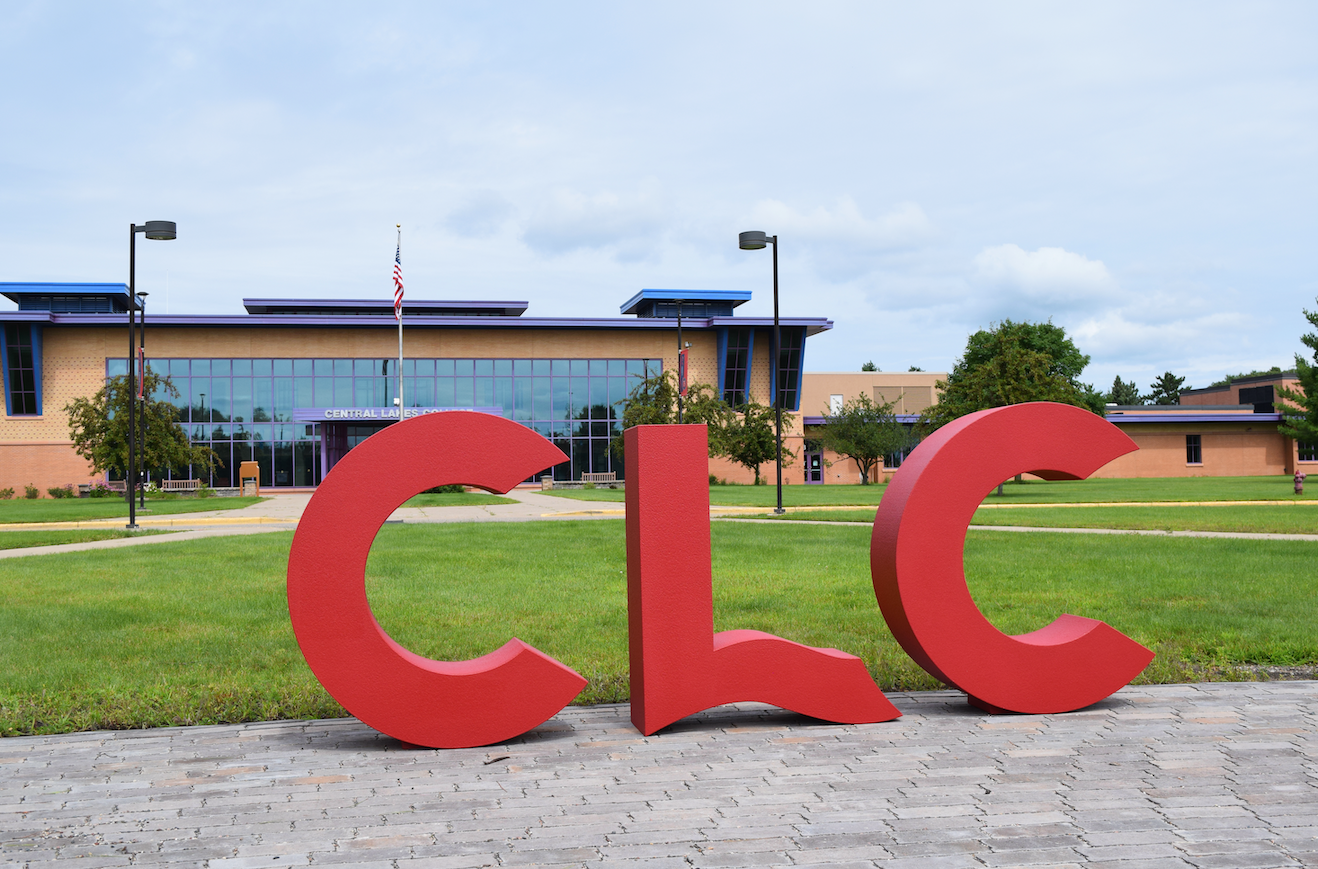By Keith Olander, Dean of Agricultural Studies
Hara Charlier, President of Central Lakes College
Agriculture is critically important to Central Lakes College. It always has been. As your local college, we are here to serve our communities – and agriculture is such a critical part of central Minnesota and the people who live and work here. It’s why we put so much heart and effort into our innovative research farm and exciting academic programs in agriculture, food and natural resources.
All of the magic happens at our Staples campus Ag and Energy Center. Here, we farm about 2,000 acres, most of which are dedicated to research in the coarse, sandy soils of central Minnesota. The projects cover a wide range to topics including cover crops, water quality and quantity management and soil health. We currently have four student interns who are gaining valuable hands-on experiences in the field and working with our research partners. The work has a significant impact on our region’s economy through both edible bean research and water monitoring studies to support irrigated agriculture.
Agriculture is all about partnerships, whether those be with local farmers, with state agencies or with the terrific companies dedicated to the many aspects of agriculture. Those partnerships leverage resources to improve our communities together. We’re very excited about one recent example: our new aeroponics/hydroponics food pod.
Installed in January, this pod is a massive shipping container, which includes all of the components needed for sustainable, local food production – year round, right here in central Minnesota. The project, which is a collaboration with the Todd-Wadena Electric Cooperative, Electrical Power Research Institute, Great River Energy and Lakewood Health System, will help gather data useful for the future expansion of Minnesota’s indoor agriculture industry. Our pod is one of 11 across the country and is the only one in Minnesota.
Our first harvest – about an acre equivalency of kale – will be ready October 1. All of the fresh, leafy greens will go to Lakewood Health System for their work to address hunger-health disparities throughout their federally designated food desert region. As we increase production, we will expand support to local food pantries and schools. The sustainability component comes from the pod’s ability to provide valuable data for utilities for the Electrical Power Research Institute. Understanding electric load in the pod provides information about how to optimize electricity load planning and evaluating beneficial rate designs to allow for replication of this system elsewhere in Minnesota. Ultimately, this unique method of indoor agriculture provides energy and water-efficient local food production.
Tammy Rick, one of our horticulture technicians who works closely on the project, said “Here at the Ag & Energy Center, we have been enjoying the challenge of learning the process of producing a crop hydroponically and look forward to our first scheduled harvest of kale.”
Of course, when you farm 2,000 acres – in the field or in a pod – produce is plentiful, and getting fresh food into our communities is a vital part of our mission. Once the research projects are complete, we make sure remaining vegetables don’t go to waste. Each year, we glean approximately six tons of freshly picked potatoes, sweet corn, beans, apples, grapes and more. All of this stays in our communities through area food shelves and schools, including some of our own students who experience food insecurity.
CLC is also proud to host AgCentric, a Minnesota State Center of Excellence initiative focused on agriculture. This arm of our work is also all about partnerships – with industry leaders, public schools, and other colleges (Northland Community and Technical College, Ridgewater College and St. Cloud Technical and Community College), working together to promote agriculture in the northern part of the state.
One unique example of our collective work is a new Technical Applications in Agriculture (TAA) project to address the shortage of qualified technicians trained to manufacture, use and maintain equipment. This shortage is costing the economy $180 billion in lost revenue, according to a study commissioned by the Associated Equipment Distributors Foundation. CLC and AgCentric were recently awarded a $584,613 National Science Foundation grant for research on addressing this critical agricultural technician workforce gap.
All of these partnerships provide valuable opportunities to involve our students in research, partnerships and unique experiences in any one of the many aspects of agriculture. CLC agriculture programs span both the Brainerd and Staples campuses, and include programs such as Agricultural Science, Specialty Crops Management, Farm Business Management, Natural Resources, Horticulture and Landscape and Greenhouse Food Production. We invite you to check out any of these programs online at www.clcmn.edu or to schedule a tour. We’ll see you on the farm!
 CLC News The news and events from Central Lakes College
CLC News The news and events from Central Lakes College


